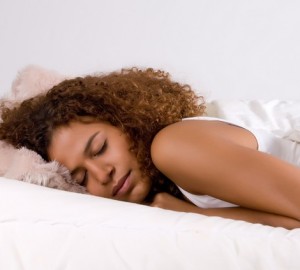The Importance of Sleep
Author: Wilfredo Benitez
 We all know that sleep is important. I think it is safe to say that nobody would recommend that you should get less than adequate sleep. I also think it would be rare if someone were to tell you that they wished they got less sleep.
We all know that sleep is important. I think it is safe to say that nobody would recommend that you should get less than adequate sleep. I also think it would be rare if someone were to tell you that they wished they got less sleep.
We talk about sleep a lot in our society and rightly so. Sleep is important for recovering from the activities of the day and the more you do throughout the day, the more sleep you need to recover. Unfortunately, too many people are either not getting enough sleep or not getting a quality level of sleep.
Women’s sleeping patterns is of special consideration because of what may typically occur throughout a woman’s lifetime. When a woman is pregnant, her sleep will most certainly be affected as she wakes up throughout the night to use the restroom or alter her sleeping position. 1 With newborns, women/mothers may have to wake up throughout the night to help their baby feed and possibly to help get their baby back to sleep. Additionally, menopausal transition has been associated with sleep difficulty. 2
The following can also be reasons for not getting the quantity or quality of sleep that is ideal 1: alcohol consumption, late dinners, late exercise, drinking caffeinated beverages—even a late-afternoon coffee could affect sleep 3 –and late screen time as the light-emitting screens used by these devices interferes with the production of melatonin, a sleep-producing hormone. 4
It may be easy to brush some of these things off and say things such as, “Well, I watch a bit of Hulu or Netflix before bed and I sleep just fine,” or “Coffee never affects me,” and this may seem true, but it doesn’t necessarily mean that it is; you just may not be noticing or connecting the symptoms which, if left unchecked for a long period of time, may be doing more harm than you think. In one study at the University of California San Francisco, researchers found that the women who reported very poor or fairly poor sleep quality had greater increases in the biomarkers of inflammation than the men who reported the same quality of sleep 5 and chronic inflammation can lead to a plethora of health conditions, not excluding heart disease.
Getting more sleep may seem difficult or impossible to do, but more or better sleep doesn’t necessarily mean you need to be making sure you are getting 7-8 hours of sleep every night, although it could. Below are some habits to consider; being more mindful of that may improve one’s sleeping difficulties:
- Establish a regular sleep schedule.
- Avoid late dinners and/or heavy dinners.
- Avoid screen time close to bedtime.
- Avoid alcohol and caffeine close to bedtime.
- Avoid or reduce time and/or intensity of exercise close to bedtime.
- Avoid drinking liquid before bedtime.
- Limit, reduce, or avoid napping.
Altering some habits may help improve the quality and quantity of your sleep, but some people may not be so lucky and may be experiencing a sleep disorder such as insomnia or sleep apnea and not merely some difficulty sleeping. If you are experiencing chronic sleep difficulties and symptoms throughout the day such as fatigue, inability to focus and/or changes with emotions, it may be wise to consult your doctor.
References
- Braun, K. Women’s Health Queensland Wide Inc. Women’s Health Queensland Wide. Health Journey 2014. Issue 2.
- Kravitz, HM, Ganz, PA, Bromberger, J, Powell, LH, Sutton-Tyrrell, K, Meyer, PM. Sleep difficulty in women at midlife: a community survey of sleep and the menopausal transition. 2003; 10(1): 19-28. https://www.ncbi.nlm.nih.gov/pubmed/12544673
- Drake C, Roehrs T, Shambroom J, Roth T. Caffeine effects on sleep taken 0, 3, or 6 hours before going to bed.J Clin Sleep Med. 2013; 9(11):1195-1200. doi: 10.5664/jcsm.3170.
- Chang AM, Aeschbach D, Duffy JF, Czeisler CA. Evening use of light-emitting eReaders negatively affects sleep, circadian timing, and next-morning alertness. Proc Natl Acad Sci USA. 2015; 112(4): 1232. doi: 10.1073/pnas.141849011.
- Prather AA, Epel ES, Cohen BE, Neylan TC, Whooley MA. Gender differences in the prospective associations of self-reported sleep quality with biomarkers of systemic inflammation and coagulation: findings from the Heart and Soul Study. J Psychiatr Res. 2013; 47(9): 1228-35. doi: 10.1016/j.jpsychires.2013.05.004.

